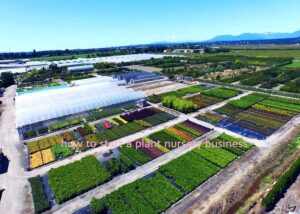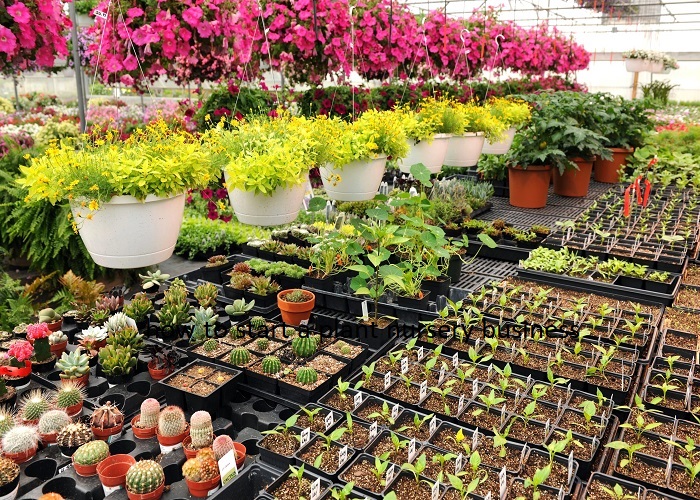Starting a plant nursery business is an exciting venture that combines a love for plants with entrepreneurial spirit. Whether you’re a gardening enthusiast looking to turn your passion into profit or an entrepreneur eager to tap into the growing demand for greenery, a plant nursery can be a rewarding endeavor. In this comprehensive guide, we’ll explore the key steps to help you establish and grow a successful plant nursery business.
What is a Plant Nursery?
A plant nursery is a specialized facility dedicated to the cultivation and propagation of various plants. It serves as a hub for nurturing young plants from seeds, cuttings, or seedlings until they are ready for transplanting. Plant nurseries play a crucial role in supplying healthy and well-established plants to farmers, landscapers, and gardening enthusiasts. They provide an array of plant varieties, ranging from ornamental flowers to fruit-bearing trees. With a focus on optimal growing conditions, plant nurseries aim to produce robust and high-quality plants, contributing to environmental conservation, landscaping projects, and the flourishing greenery in gardens and urban spaces.
Things needed to start nursery
Land: Land is the foundational canvas for agricultural endeavors, a critical factor in the success of any cultivation venture. The choice of land determines the sunlight exposure, accessibility, and overall environment for plant growth. Whether for a farm, garden, or nursery, the right land is essential for fostering healthy crops and sustainable agriculture.
Soil: Soil in a plant nursery is the lifeblood of cultivation, providing a nutrient-rich medium for plant growth. Its composition and quality impact the health of plants, making it a vital element for fostering robust and thriving flora in a nursery setting.
Manure :Manure in a plant nursery is a natural fertilizer that enhances soil fertility. Derived from organic matter, it enriches the soil with essential nutrients, promoting healthy plant growth and contributing to the overall vitality of the nursery’s ecosystem.
Water: Water in a plant nursery is the life-sustaining force that ensures plants receive the hydration necessary for growth. Proper irrigation is essential, and the careful management of water resources is crucial for maintaining the health and vitality of nursery plants.
Nursery Tools: Tools in a plant nursery are indispensable for precision in planting, pruning, and maintenance. From hand tools like pruners and shovels to specialized equipment, they enable efficient care, shaping the development of plants and contributing to the overall health of the nursery.
Machinery and Equipment: Machinery and equipment in a plant nursery are the technological backbone that enhances efficiency. From automated irrigation systems to potting machines, they streamline operations, reducing manual effort. These advancements in technology contribute to a more productive and resource-efficient nursery, ensuring optimal conditions for plant growth and cultivation.
Manpower: Manpower in a plant nursery is the skilled workforce nurturing the green domain. Armed with horticultural knowledge and passion, they are the caretakers, ensuring the daily needs of the nursery are met. Their expertise contributes to the health and vibrancy of the plant ecosystem.

Implement Effective Marketing Strategies
Online Presence:
In today’s digital age, having a strong online presence is crucial for reaching a broader audience. Create a professional website showcasing your plant inventory, services, and contact information. Utilize social media platforms to share engaging content, connect with customers, and showcase the beauty of your plants.
Local Marketing:
Engage in local marketing efforts to target customers in your area. Attend farmers’ markets, garden shows, and community events to promote your nursery. Collaborate with local businesses, landscapers, and garden centers to expand your reach and establish partnerships.
Customer Education:
Educate your customers about plant care, gardening tips, and the benefits of different plant varieties. Providing valuable information positions your nursery as a trusted resource and fosters a loyal customer base.
21 Crucial Steps to Having Your Own Plant Nursery Business
Starting your own plant nursery business can be a fulfilling venture, combining your love for plants with entrepreneurial aspirations. To ensure a successful launch, follow these 21 crucial steps:
- Thorough Research: Understand market demand, competition, and local preferences.
- Business Plan: Develop a comprehensive business plan outlining your goals and strategies.
- Niche Selection: Choose a specific plant niche or specialization.
- Legal Compliance: Register your business and comply with local regulations.
- Location: Select a suitable location with ample sunlight and accessibility.
- Quality Seed Sourcing: Establish relationships with reliable seed suppliers.
- Manure and Soil Preparation: Ensure quality soil and utilize natural fertilizers.
- Water Management: Implement effective irrigation systems.
- Tool Acquisition: Equip yourself with essential nursery tools.
- Machinery and Equipment: Invest in modern machinery for efficiency.
- Skill Development: Learn about plant care, propagation, and disease control.
- Online Presence: Develop a professional website and leverage social media.
- Local Marketing: Engage with the community through events and partnerships.
- Customer Education: Provide information on plant care and benefits.
- Inventory Management: Monitor and track plant inventory efficiently.
- Quality Control: Regularly inspect plants for health and quality.
- Staffing: Hire knowledgeable and passionate staff.
- Financial Management: Implement sound accounting practices.
- Networking: Build relationships with local businesses and garden centers.
- Continuous Learning: Stay updated on industry trends and innovations.
- Infrastructure Setup: Invest in greenhouses, growing beds, and essential equipment.
By following these steps, you’ll establish a solid foundation for your plant nursery business and increase your chances of long-term success.
Conclusion
Starting a plant nursery business requires a combination of passion for plants, business acumen, and a commitment to quality. By conducting thorough research, choosing a niche, setting up your nursery infrastructure, sourcing quality plants, and implementing effective marketing strategies, you can lay the foundation for a successful and sustainable business.
As you embark on this green journey, remember that continuous learning, adaptation to market trends, and a dedication to customer satisfaction are key to the long-term success of your plant nursery. Cultivate not only plants but also a thriving business that brings beauty and joy to your customers and contributes to the growing world of horticulture.


